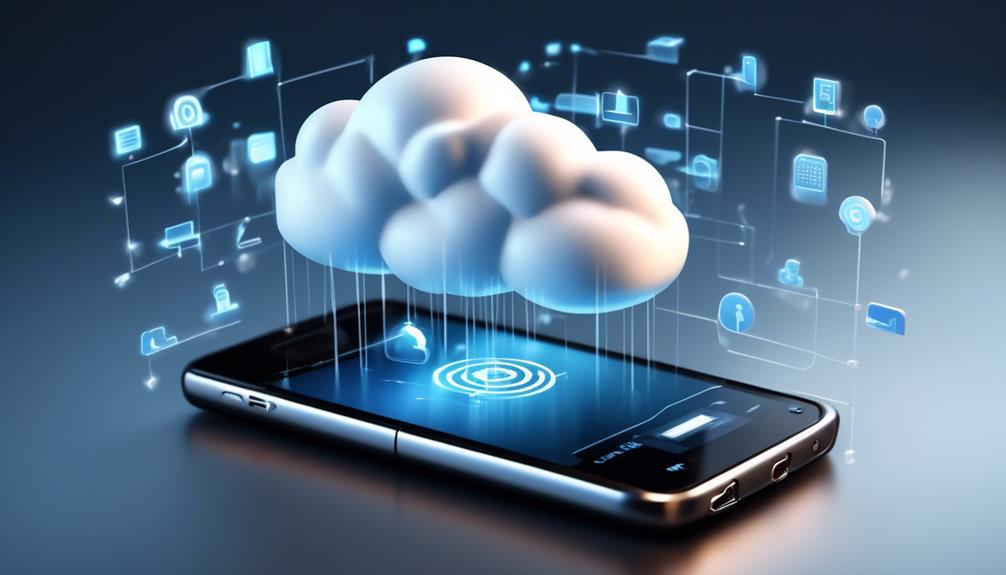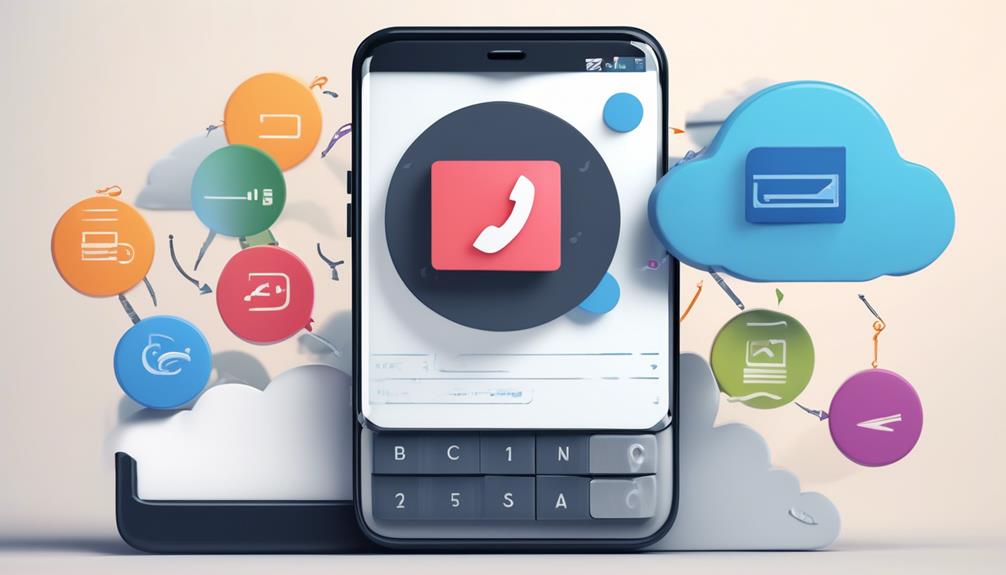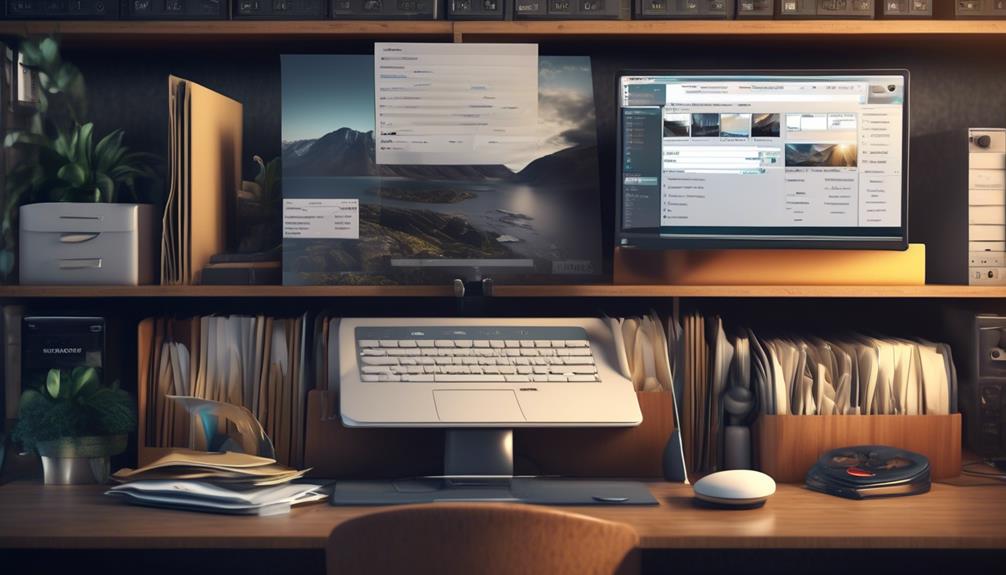Have you ever thought about where call recordings are stored on your phone?
It's a common belief that they are stored in a designated folder within the internal storage, but is that really the case?
Let's explore the truth behind the location of call recordings and how it might impact your ability to access and manage these files.
Key Takeaways
- Call recordings must comply with legal requirements and regulations to protect user privacy.
- Cloud-based call recording storage solutions offer scalability, cost-effectiveness, and accessibility.
- On-premises call recording storage options provide greater control over data security and accessibility.
- Storing call recordings locally on mobile devices raises privacy and security concerns.
Legal Requirements for Call Recording Storage
Understanding the legal requirements for call recording storage is crucial for ensuring compliance and protecting user privacy. When it comes to storing recorded calls, it's essential to consider the regulations and laws that govern the handling of such sensitive data.
In many regions, there are strict guidelines regarding the storage and security of call recordings to safeguard user privacy and ensure that the recordings aren't misused. The use of Call Recorder apps to store phone calls brings with it the responsibility to adhere to these legal requirements.
In some cases, these legal requirements may dictate the specific locations where call recordings can be stored, such as internal storage or designated secure servers. It's important to be aware of these regulations to avoid any potential legal implications.
Cloud-Based Call Recording Storage Solutions

Navigating the legal requirements for call recording storage has led us to explore the benefits and considerations of utilizing cloud-based solutions for storing recorded calls.
Cloud-based call recording storage solutions offer numerous advantages, including scalability, cost-effectiveness, and accessibility. By leveraging cloud technology, businesses can easily scale their storage capacity based on their needs, eliminating the need for large upfront investments in hardware. Additionally, the pay-as-you-go model of cloud storage helps manage costs efficiently.
Considerations for utilizing cloud-based call recording storage solutions include data security, compliance with industry regulations, and the reliability of the chosen cloud service provider. It's crucial to select a provider that meets industry-specific compliance requirements and offers robust security measures to protect sensitive call recordings. Furthermore, ensuring the reliability and uptime of the cloud storage provider is essential to prevent any potential data loss or service interruptions.
On-Premises Call Recording Storage Options
Exploring on-premises call recording storage options offers businesses greater control over their data security and accessibility. When it comes to on-premises storage, businesses can choose from various options to ensure the security and integrity of their call recordings. One crucial aspect of on-premises storage is data encryption, which provides an added layer of protection for sensitive call recordings. By encrypting the stored data, businesses can mitigate the risk of unauthorized access and maintain compliance with data security regulations.
Here's a comparison of some on-premises call recording storage options:
| Storage Option | Description | Benefits |
|---|---|---|
| On-premises servers | Call recordings are stored on servers within the organization's premises. | Enhanced control and security over data. |
| Network-attached storage (NAS) | Call recordings are stored on a dedicated NAS device connected to the organization's network. | Scalability and easy access to recordings. |
| Digital video recorders (DVRs) | DVR systems can be used to store call recordings securely on-site. | Integration with existing security infrastructure. |
Choosing the right on-premises storage option involves considering factors such as data encryption capabilities, scalability, and integration with existing IT infrastructure.
Mobile Device Call Recording Storage

We can store call recordings locally on mobile devices in the default internal storage location, specifically in Internal storage/CallRecordings. However, accessing these recordings may require rooting the device and using a root file explorer, which can be a complex and risky process.
Additionally, with the compatibility issues arising from Android 11's scoped storage restrictions, accessing new recordings may pose challenges.
As a possible alternative, users have the option to backup recorded calls to Google Drive for additional data security, ensuring that their recordings are safely stored in the cloud.
Considering these challenges, it may be beneficial for users to explore possible alternatives, such as utilizing third-party call recording apps that offer seamless integration with the latest Android versions, providing secure and easy access to call recordings.
Implications of Call Recording Storage on Privacy and Security
Transitioning to the implications of call recording storage on privacy and security, it's crucial to consider the potential risks associated with accessing and safeguarding call recordings. When call recordings are stored locally on a device, there are inherent privacy and security concerns. Unauthorized access to these recordings, whether through rooting the device or other means, can lead to breaches of privacy. Additionally, the lack of visibility and access without root permissions may hinder users from effectively managing their recorded calls. The introduction of scoped storage restrictions in Android 11 further emphasizes the need to address privacy and security implications.
To emphasize the importance of data security in call recording storage, consider the following table:
| Privacy Risks | Security Risks | Mitigation Strategies |
|---|---|---|
| Unauthorized access to | Vulnerability to data | Implement strong data |
| call recordings by | breaches and cyber | encryption to protect |
| unauthorized parties | attacks | call recordings |
Data encryption emerges as a crucial aspect of call recording storage to mitigate privacy and security risks. By implementing robust data encryption measures, users can ensure that their call recordings remain secure and private, safeguarding sensitive information from unauthorized access and potential cyber threats.
Frequently Asked Questions
How Do I Find Saved Call Recordings?
To find saved call recordings, we recommend using call recording apps.
These apps allow easy access to your saved recordings and provide features like file management and organization.
They offer a user-friendly interface, making it simple to locate and manage your call recordings.
Where Can I Find My Recorded Calls?
We understand the importance of call recording privacy.
Where can I find my recorded calls? This is a common concern.
The process of locating recorded calls is influenced by various factors, including device settings, operating system version, and app compatibility.
Understanding these elements is crucial for mastering call recording management.
As we delve into this topic, we'll ensure that the information provided is comprehensive and valuable for our audience's needs.
Where Does Callapp Store Recordings?
CallApp ensures robust data security for stored recordings.
Our app stores call recordings locally on the device's internal storage.
It's essential to note that accessing these files may require rooting the device and using a root file explorer, particularly due to Android 11's scoped storage restrictions.
Additionally, users have the option to backup recorded calls to Google Drive from the app's settings menu, providing an extra layer of data security.
Where Do I Find Call Recordings on My Iphone?
When it comes to call recording apps, finding the recordings on an iPhone can be a breeze. These apps typically have a dedicated section where all the call recordings are neatly organized and easily accessible.
With just a few taps, we can navigate to the app, and voilà, there are the recordings. It's a simple and efficient way to manage and access our call recordings, providing us with mastery over our recorded conversations.
Conclusion
In conclusion, call recordings are saved in various locations such as internal storage, cloud-based solutions, or on-premises options.
However, the implications of call recording storage on privacy and security are significant.
Is it worth the convenience of having access to call recordings if it compromises our privacy and security?










